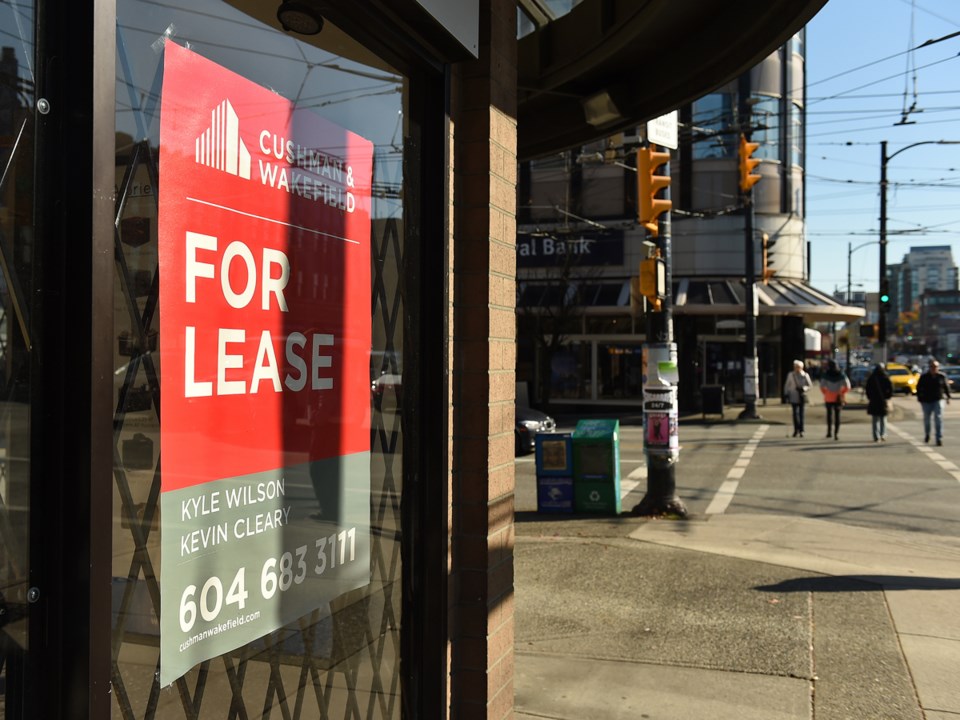What was announced by the province Monday as an interim tax relief measure for is being panned by City of Â鶹´«Ã½Ó³»council members and staff as unrealistic, short sighted and simply not doable.
The provinceâs proposed fix to deal with huge property tax bills and is temporary and puts the onus on individual municipalities to debate tax rates across large swaths of the commercial sector.
In Vancouver, that means staff and council would have to make those decisions in a piecemeal fashion across thousands of businesses.
The cityâs preference, and the preference of other Lower Mainland municipalities, is for a new property tax class to be created that would ease tax levels on small businesses with undeveloped air above them.
Currently, one and two-storey buildings are hit with property tax bills that reflect the undeveloped potential above them â effectively, a tax on air.
The city wants a separate tax class for those properties specifically, so the tax burden could be lessened and based on a propertyâs current use rather than its future development potential. Itâs a tax model commonly referred to as split assessment.
Thatâs not what Â鶹´«Ã½Ó³»got, and Mayor Kennedy Stewart isnât happy about, nor are some of his fellow councillors.
âThereâs a huge gap between what we are asking for and what this is,â Stewart told the Courier Monday. âAt the core of our ask was for the province to give us the tools to deal with development potential and thatâs not here.âÂ
The provinceâs tax proposal includes the following:
- a base tax year of 2015 or later to use as comparison to the current taxation year. To put that in perspective, a municipality where property values began to spike in 2017 could choose 2016 as the base year.
- a minimum percentage of increase in land value since the chosen base year. Cities can choose the tax increases â 20, 30 or 40 per cent, for example â as the threshold for which properties qualify.
- the increase in value must be to the land, rather than improvements to a building. At least one tenant has to be responsible for all or a portion of the property taxes to qualify for the exemption.
Stewart cited an example of a Walmart or big bank that shares the same building as a small business. The cityâs preference is to be able to help that small business specifically, while the provinceâs proposal would give tax breaks to both.
âWhen the highest and best use is applied to their properties and their leasing, theyâre getting hit with very heavy property taxes because of that â split assessment would have really helped,â Stewart said.
Even if the city was in favour of the provinceâs pitch, getting it done in time could be impossible. Bylaw changes are needed by April 22. Having staff draft the bylaw and do the requisite public feedback with the business sector in two months puts the cityâs finance staff in a bind.
âIt would require literally each municipality to go through thousands of different properties and determine who would be eligible, so [thereâs] a lot of room for inequity. And also administratively, itâs almost impossible to achieve,â NPA Coun. Sarah Kirby-Yung told the Courier Tuesday morning.
The split assessment model has the backing of a wide range of policy makers: chief financial officers from Vancouver, Burnaby, Coquitlam, North Vancouver, Richmond, Surrey and West Vancouver. Itâs also received support from the Lower Mainland Chambers of Commerce and Boards of Trade and the B.C. Chamber of Commerce. Several resolutions on the issue have received support from the Union of B.C. Municipalities.
Kirby-Yung likened the tax proposal to the recent introduction of ride hailing.
âWhen municipalities started going it alone and looking at putting it in, we saw very quickly a patchwork of regulations developing that would have been inconsistent,â she said. âThatâs not what we want to achieve here. You want taxation to be predictable and consistent and equitable.â



